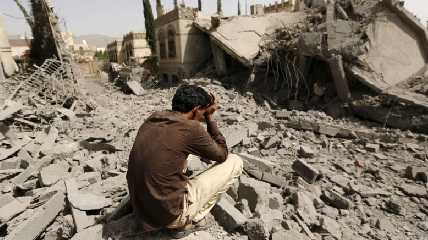
16 March 2022; MEMO: After more than seven years of war, Yemen is becoming a "chronic emergency" and "there are grave risks in chronic emergencies, namely inertia and fatigue," a senior UN official said yesterday.
Speaking to the UN Security Council on Yemen, Under-Secretary-General for Humanitarian Affairs and Emergency Relief Coordinator, Martin Griffiths, said: "Yemen suffers globally from the terrible statistic that it has the highest rate of the percentage of its overall population in need."
Griffiths said that aid agencies are seeking, via a virtual conference being held today, nearly $4.3 billion to help more than 17 million people across the country this year.
This event is not just about the money, Griffiths said, though that is hugely important. "It is also an opportunity for the international community to show we are not giving up on Yemen, even after all these years and with new crises emerging," he said, noting this is "a very important message."
He also said: "New nationwide assessments done by our humanitarian partners in Yemen confirm that 23.4 million people now need some form of assistance. That is three of every four – and that is the astonishing figure which is so deeply troubling.
"Among them, 19 million will go hungry, and that is an increase of almost 20 per cent since last year. And we believe, and I use these words carefully, that more than 160,000 of these people will face famine-like conditions."
Griffiths also said: "Last year, hostilities killed or injured more than 2,500 civilians and forced nearly 300,000 people to flee their homes – to conclude with 4.3 million people now displaced in Yemen since 2015."
He pointed out that "two thirds of major UN programmes [in Yemen] have already scaled down or closed in recent months for lack of money, including deep cuts to core services like food aid, water, health care and relief for people fleeing the violence in Marib and elsewhere.
According to the UN, by the end of 2021, the war in Yemen has killed 377,000 people and left most of the population of 30 million dependent on humanitarian aid.




